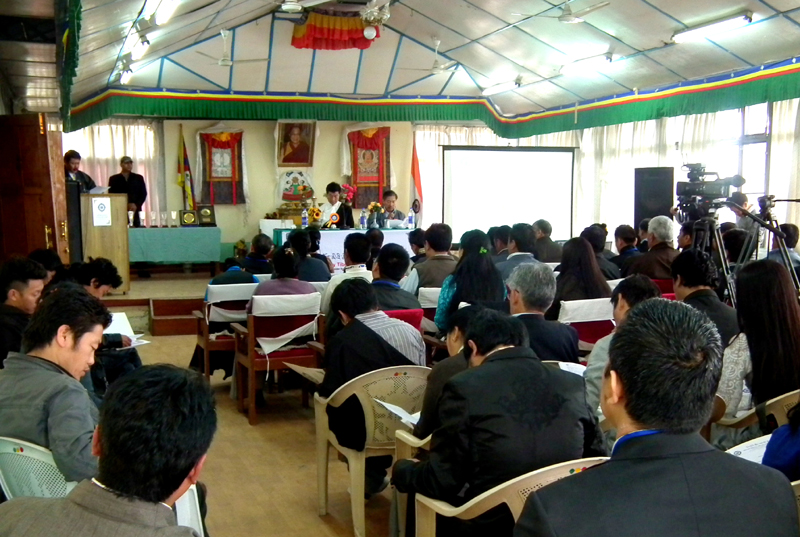 Dharamsala: - Dr Lobsang Sangay, Kalon Tripa (political leader) of the Central Tibetan Administration, announced on April 18 that the Indian government has decided to lengthen the period required for the renewal of residential permits for thousands of Tibetans living in exile.
Dharamsala: - Dr Lobsang Sangay, Kalon Tripa (political leader) of the Central Tibetan Administration, announced on April 18 that the Indian government has decided to lengthen the period required for the renewal of residential permits for thousands of Tibetans living in exile.
Addressing the Annual General Body Meeting of the Tibetan Chamber of Commerce (TCC) in Dharamsala, northern India, Dr Sangay said Tibetan registration certificates, or RCs, will now be extended to five years, as opposed to the previous one year or six months.
However, Tibetans born outside India are required to have stayed in India for at least two decades before they can avail the benefits of the extension.
RCs are required to obtain work, rent an apartment, open a bank account, and obtain other legal documents such as driving licenses and identity certificates, which are necessary for international travel.
Also on the subject registration certificates, Dr Sangay said that, when he was in Bodhgaya for the December/January Kalachakra, he was informed by TCC members that some Tibetans in northeast India face problems using their RCs to obtain visas to enter Thailand, Singapore and other countries. He said this is not the case, and that RCs can be used to enter these countries, with the exception of Malaysia.
The chief guests at the TCC meeting were Dr Sangay and Tibetan finance minister, Tsering Dhondup. Tibetan members of parliament, Tibetan administration secretaries and NGO representatives also attended.
Dr Sangay praised the TCC for its consistent hard work, which he related to the Kashag's (cabinet's) three guiding principles of unity, innovation and self-reliance.
He said that unity implies that there should be no discrimination between members of the three regions of Tibet, between men and women, or between rich and poor.
He continued that the TCC has made important innovations, such as extending its networking and operations nationally and internationally- a necessity in both politics and business. He emphasized the importance of information technology in business, the importance of women's education and also praised the TCC for its practice of self-reliance.
Finally, Dr Sangay announced that the Kashag plans to establish a social bank, which will benefit the TCC.
On the meeting's second and final day, Tsering Dhondup spoke on the TCC's development plans, including the building of trade relations with other countries.
The TCC was founded in 2004 and has 150 members in India, Bhutan and Nepal.


![Tibet has a rich history as a sovereign nation until the 1950s when it was invaded by China. [Photo: File]](/images/stories/Pics-2024/March/Tibet-Nation-1940s.jpg#joomlaImage://local-images/stories/Pics-2024/March/Tibet-Nation-1940s.jpg?width=1489&height=878)















